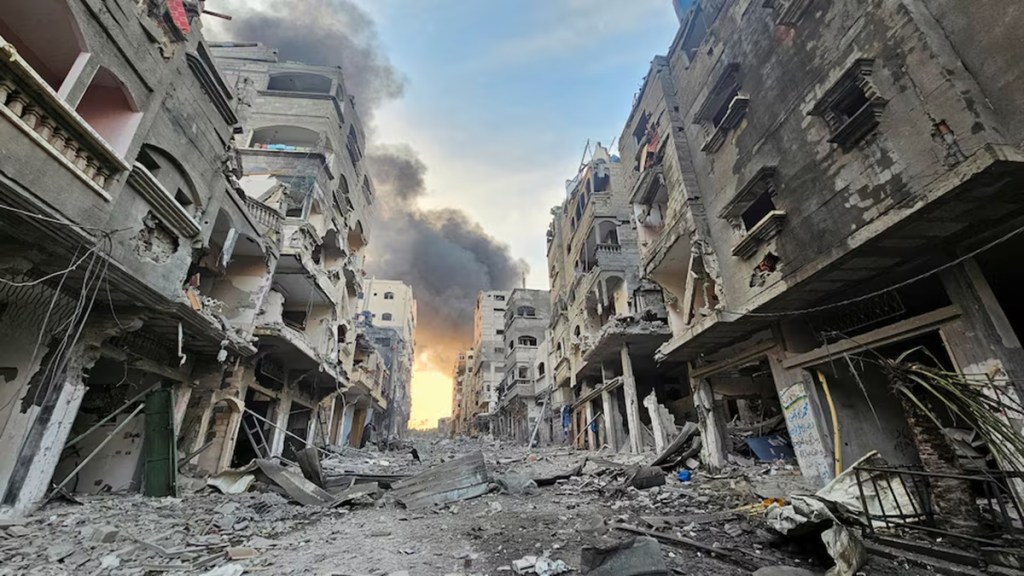The Gaza war that was triggered by the incursion of Hamas forces into Israel killing 1,200 people and taking 250 hostages on October 7, 2023, still rages. Normally, such anniversaries are sombre affairs marked by remembrances of one’s lost and renewed hopes of getting the surviving hostages back home. Sadly, however, the occasion was marked by intensified bombing by Israel in Gaza adding to the tally of 42,000 Palestinians already killed, mostly women and children. Nearly all the 2.3 million people have been displaced. Gaza has been reduced to a dystopian, rubble-strewn wasteland due to the relentless bombing over a year. The war threatens full-blown famine conditions and a humanitarian disaster as aid inflows are down to a trickle. The only silver lining has been a temporary pause to allow polio vaccination for children. While Israel’s Prime Minister Benjamin Netanyahu has vowed to continue the battle till Hamas is “totally destroyed”, he has opened a new front in Lebanon targeting Hezbollah, besides gearing up for a punitive strike on Iran for launching precision ballistic missiles on Israel.
Wars do not end unless the parties involved feel the need to silence their guns as they cannot achieve their military objectives. Alas, this does not seem to be the case at present although the top leadership of Hamas, barring the military and political head, Yahya Sinwar, has been taken out and most of the militant group’s 24 battalions, each about 1,000 strong, have been dismantled by Israeli forces. Much of Hamas’s vast tunnel infrastructure in Gaza has also been destroyed. Despite Israel’s military gains over the last year — which resulted in a sharp shift in international opinion including protests in US campuses — Netanyahu has expressed limited interest in a ceasefire deal that would allow the exchange of 100-plus surviving Israeli hostages in Gaza for Palestinian prisoners in Israeli jails. The prospects of a ceasefire are elusive as there is also no clarity whatsoever on who will administer and rebuild Gaza if and when the war ends. Netanyahu, who is politically backed by ultranationalists and religious extremists, has no appetite for a two-state solution in which Israelis and Palestinians will coexist peacefully.
The Israel-Hamas conflict will therefore continue unabated amidst dangerous portends of a full-blown regional war in which the US — with presidential elections less a month away — might be forced to be involved in. The US is not exactly a disinterested peacemaker in Gaza given its iron-clad commitment to support Israel’s right to defend itself by providing billions of dollars of weaponry. But the fact remains that the Gaza war could have ended earlier if America used its leverage over Tel Aviv to implement its three-phase ceasefire proposal in May. Taking its support for granted, Israel instead violated every red line that the US indicated — like desisting from invading Rafah — to minimise civilian casualties. Israel added fresh conditions while Hamas sought a permanent ceasefire and a higher number of Palestinian prisoners for every Israeli hostage released that scuppered the US deal. Netanyahu reportedly plans to force civilians out of northern Gaza and put Hamas militants who remain in the area under siege in order to force the release of hostages. The upshot is that the intensification of the year-long conflict is bad news for Gazans, who have been collectively punished for what Hamas did last October, and the anxious relatives of surviving Israeli hostages.


